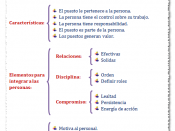As an undergrad social work student at University of Texas-Arlington we are taught how to become a generalist social worker. Becoming a generalist social worker will provide us with a broad range of skills to work with micro, mezzo and macro groups from all different ethnicities, ages, and religions. Professors here at UTA teach us many different models and theories that we can use as tools to work with our clients or groups successfully.
A newer social work perspective that I would like to discuss in this paper is the empowerment approach. The empowerment theory gained legitimacy as a paradigm back in 1981 by Julian Rappaport who discussed this paradigm in his Presidential Address at the American Psychological Association. He stated, "Empowerment is the mechanism by which people, organizations, and communities gain mastery over their lives" (Cummings pg.141). This statement provided the foundation for the empowerment approach that we as social workers use.
Since Rappaport's introduction, the empowerment concept has taken shape and acquired meaning primarily through the work of social theorists, rather than practitioners. To clarify empowerment further, a great definition by social worker and professor Lawrence Shulman states in his book The Skills of Helping, "the empowerment process involves engaging the client, family, group, or community in developing strengths to personally and politically cope more effectively with those systems that are important to them"(Shulman pg.18).
Today the empowerment approach has been researched and proved to be an effective tool to helping individuals and groups. For example, alcoholics who attend meetings such as Alcoholics Anonymous have shared feelings about how these peer-led workshops and discussion groups they attend have greatly enhanced their self-worth and helpfulness. The dignity to be able to not only help themselves to stop drinking but also help another alcoholic individual who is struggling...


